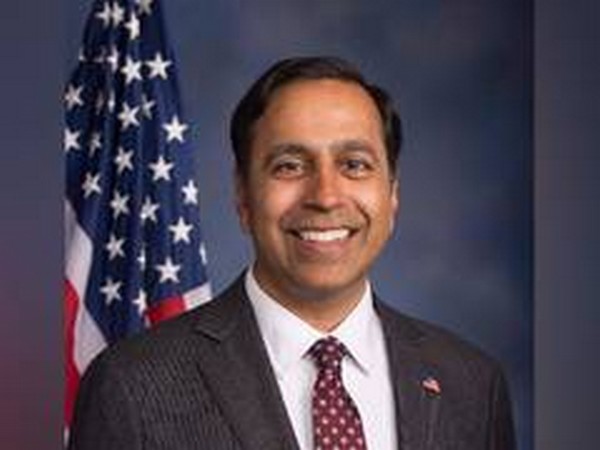India & US have to leverage their strength to provide viable alternative to Chinese authoritarian model: Raja Krishnamoorthi

- Country:
- United States
India and the US have to leverage their strength to provide a viable alternative to the authoritarian Chinese model, a powerful Indian-American Congressman has said.
The remarks by Raja Krishnamoorthi, who is the ranking member of the powerful House Select Committee on the Strategic Competition between the United States and the Chinese Communist Party (CCP), came ahead of the first state visit of Prime Minister Narendra Modi to the US at the invitation of President Joe Biden later this month.
“I think that the (Modi) visit symbolises the strength of the US-India relationship, which to me transcends politics at this point. We have to strengthen it, deepen it, make sure that we take it to new heights,” Krishnamoorthi told PTI. “We have to make sure that we leverage our strengths to make clear that there is a viable alternative to what for instance, the Chinese Communist Party is offering the world, which is an authoritarian dictatorial model; instead of that democracy, a commitment to human rights a commitment to plurality is extremely important,” Krishnamoorthi, the US representative for Illinois's 8th congressional district said.
The House Select Committee on the Strategic Competition between the United States and the Chinese Communist Party (CCP) led by Chairman Mike Gallagher and Ranking Member Raja Krishnamoorthi overwhelmingly adopted a policy proposal to enhance Taiwan's deterrence, including strengthening NATO PLUS to include India.
NATO PLUS, currently NATO PLUS 5, is a security arrangement that brings together NATO and five aligned nations - Australia, New Zealand, Japan, Israel, and South Korea - to boost global defence cooperation.
Bringing India on board would facilitate seamless intelligence sharing between these countries and India would access the latest military technology without much of a time lag.
“I think we have to discuss how we strengthen security arrangements within the Indo-Pacific area. How do we leverage our strengths? How do we make sure that we are able to maintain an international rules-based order in that region among others?'' 49-year-old Krishnamoorthi, a Democrat, said in response to a question. China is engaged in hotly contested territorial disputes in the South and East China seas. Beijing has also made substantial progress in militarising its man-made islands in the past few years.
Beijing claims sovereignty over all of the South China Sea. But Vietnam, Malaysia, the Philippines, Brunei and Taiwan have counterclaims. In the East China Sea, China has territorial disputes with Japan.
The South China Sea and the East China Sea are stated to be rich in minerals, oil and other natural resources. They are also vital to global trade.
(This story has not been edited by Devdiscourse staff and is auto-generated from a syndicated feed.)
- READ MORE ON:
- Taiwan
- nations - Australia
- Israel
- House Select Committee on the Strategic Competition
- Japan
- The House Select Committee on the Strategic Competition
- Krishnamoorthi
- Vietnam
- Malaysia
- Philippines
- Chinese
- Indo-Pacific
- The South China Sea
- South Korea
- Raja Krishnamoorthi
- India
- NATO
- East China
- Democrat
- Narendra Modi
ALSO READ
China, Japan foreign ministers meet in Beijing, seafood trade on agenda
UPDATE 1-China, Japan foreign ministers meet in Beijing, seafood trade on agenda
Foreign ministers of Japan, China hold talks in Beijing
UPDATE 2-China, Japan foreign ministers meet in Beijing, seafood trade on agenda
A Cultural Extravaganza: Global Showcase of Intangible Heritage in Beijing










